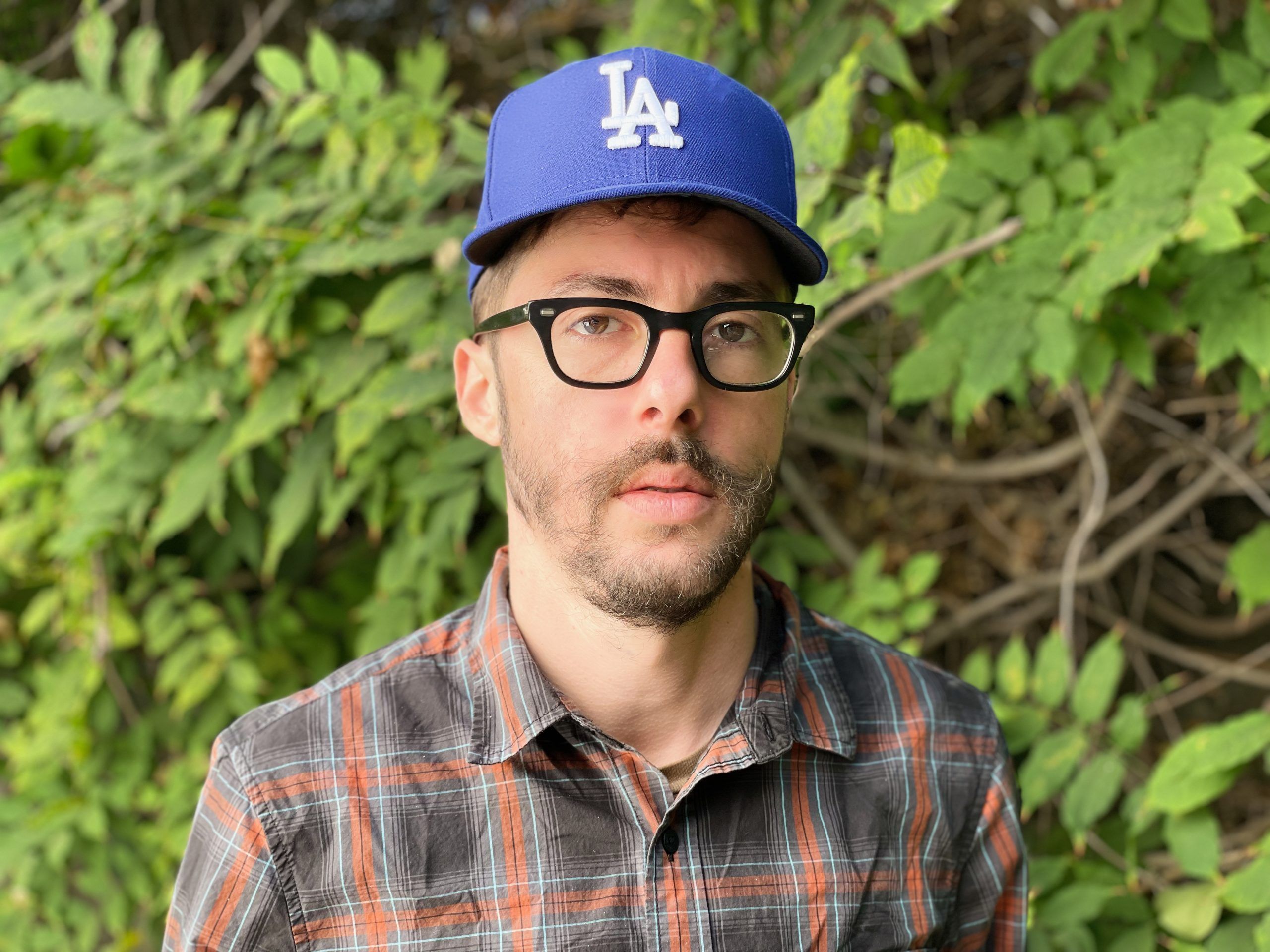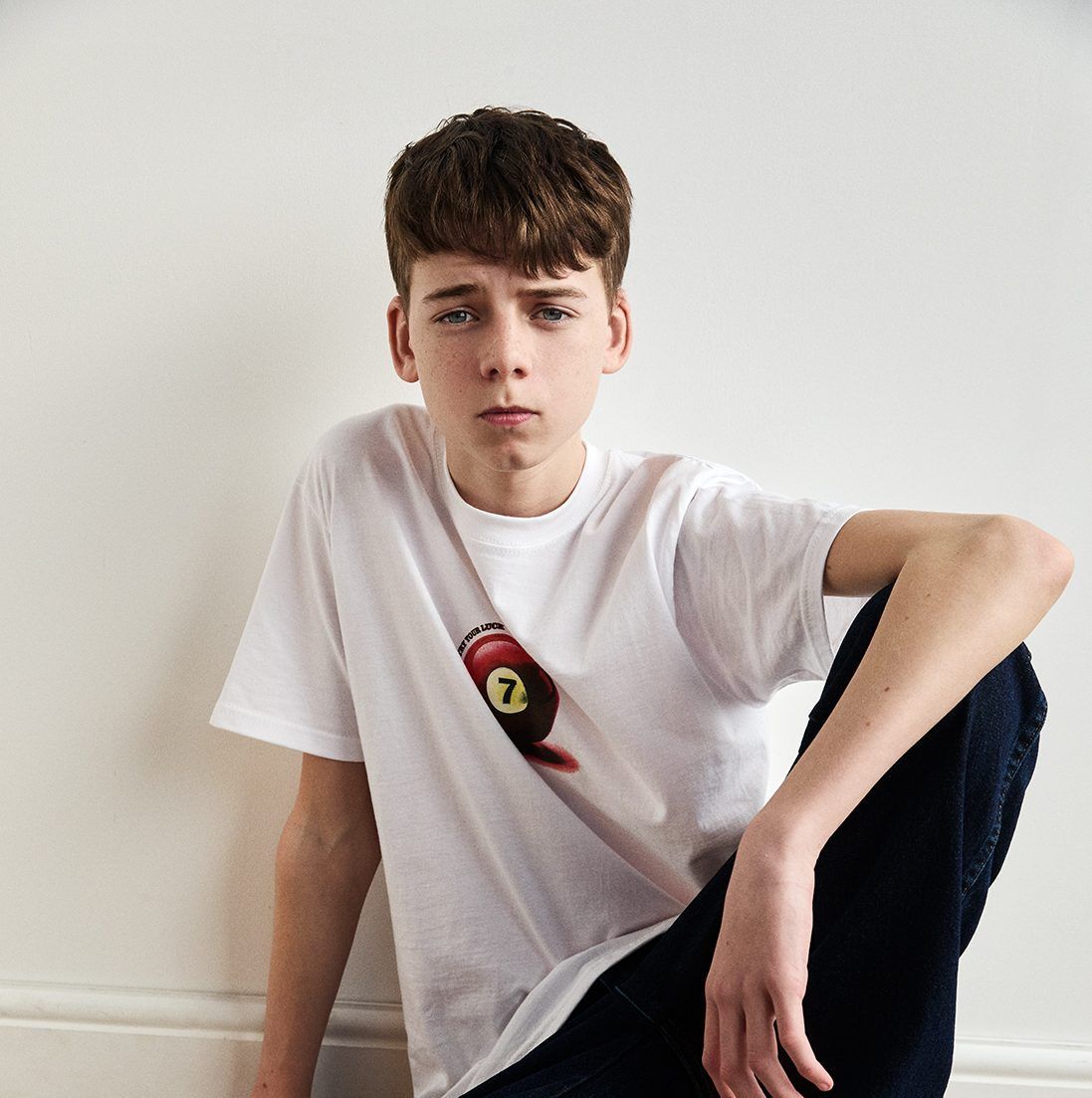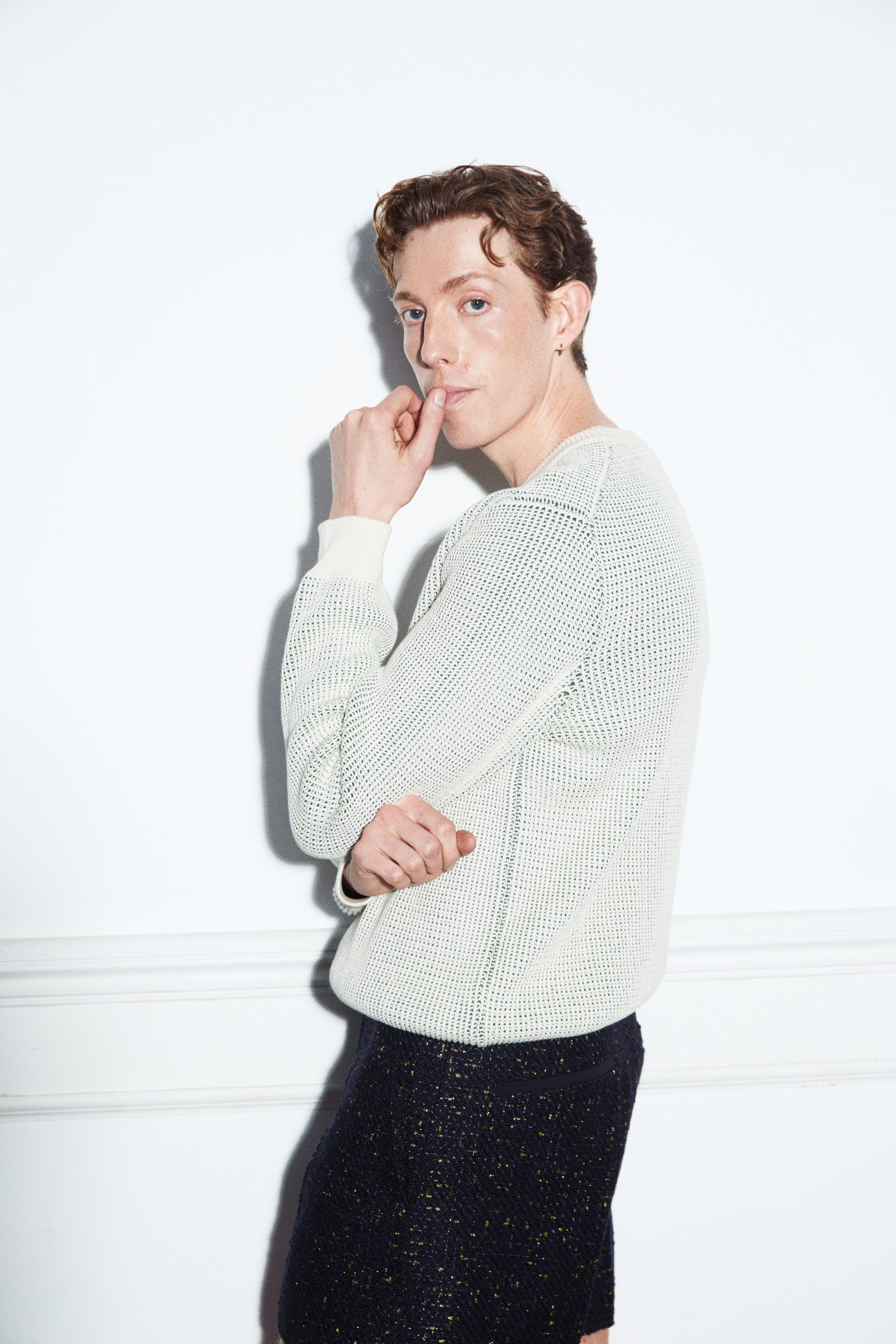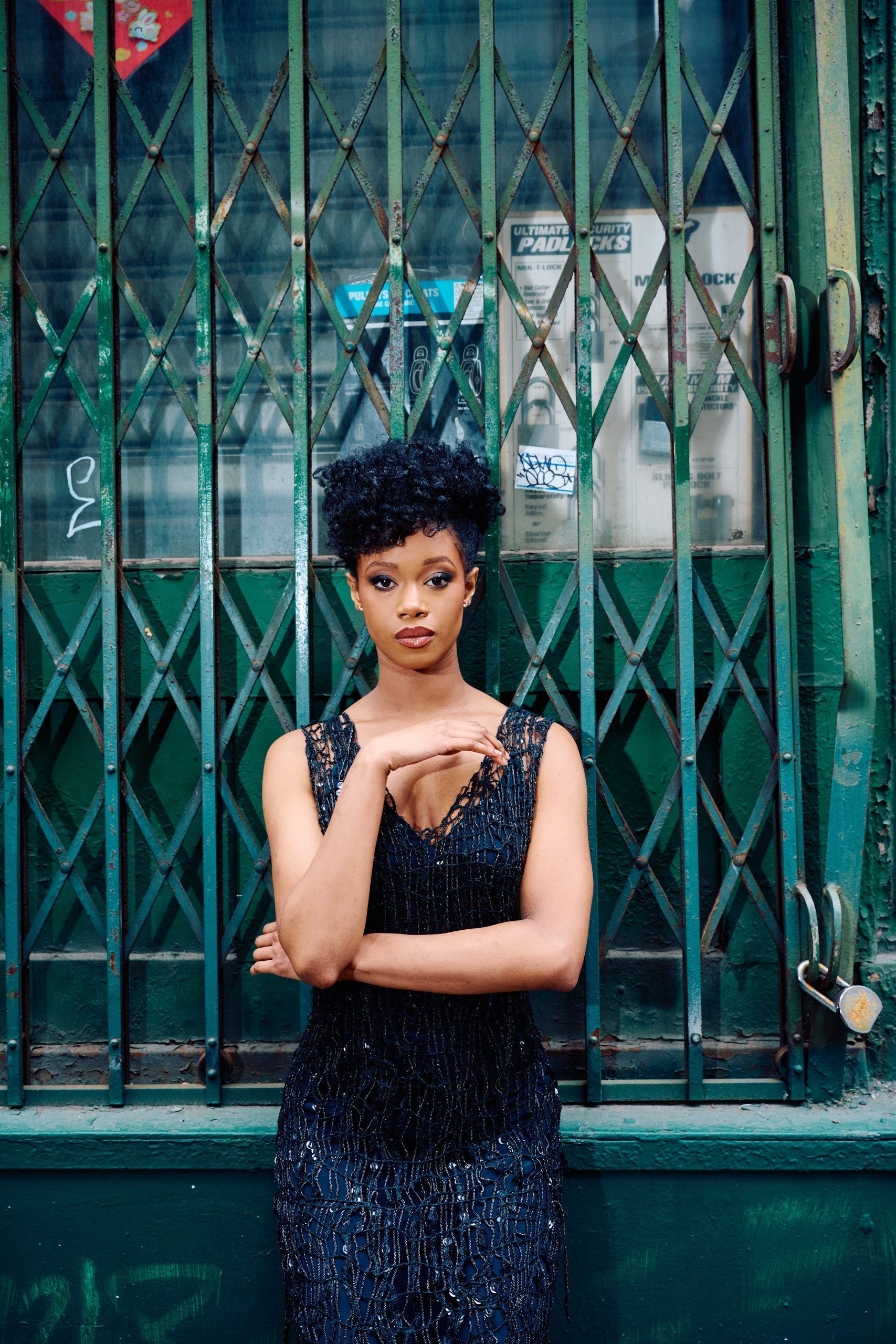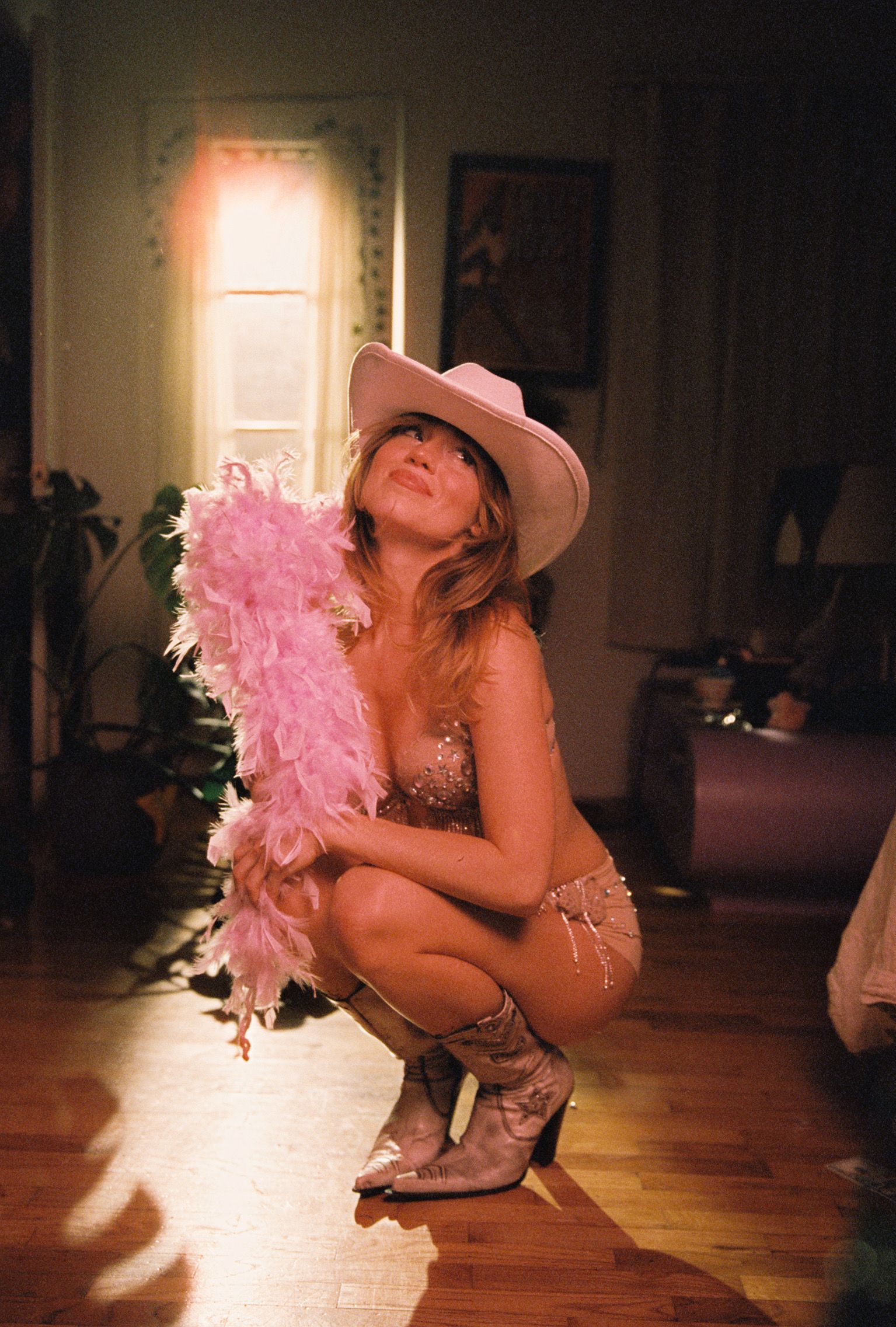Examining the antiquated traditions of fraternities through a visceral and unforgiving lens, Ethan Berger’s The Line doesn’t pull its punches. Forcing the viewer to look at the deeply toxic and cult-like behaviour of these so-called ‘brotherhoods’ we’re made to follow Tom (Alex Wolff) as he navigates his way through murky waters. Struggling with figuring out his identity and desperate to belong, Tom finds himself being drawn into this world to climb the social ladder anxious to break away from the working class. Instead, as the fraternity is threatened and questioned with the potential of completely unravelling, the choice between loyalty to the brotherhood, ambition, and himself makes for a compelling watch.
Berger’s first iteration of the script came about in 2012. Since then, the story has evolved as news about fraternities continues to make headlines. From hazing to the examination of toxic masculinity, the film puts frats under the microscope, peeling back the layers of a wider problem plaguing universities, and making the viewer bear witness.
With powerful performances from Alex Wolff, Bo Mitchell, Austin Abrams, Halle Bailey, Lewis Pullman, Mason Roberts, and Angus Cloud, we’re given an (at times) uncomfortable look at Tom’s story. And while he is the focal point of the story, it’s the characters around him that make this incredibly tangible and all too real for the audience.
In conversation with 1883 Magazine, Director Ethan Berger discusses The Line, why this story was so important to tell, the inspiration behind the film, the relationships that make The Line so compelling, working with Angus Cloud, what he learned about himself on the project, and so much more.
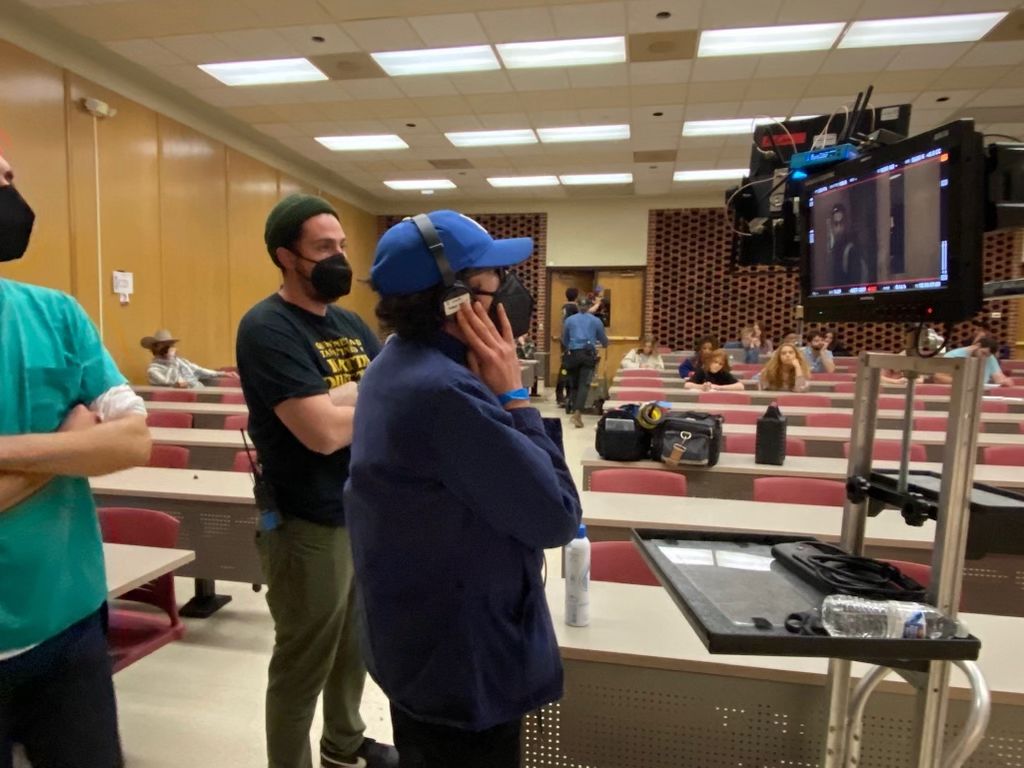
Hey Ethan, thank you so much for taking the time to speak with me today. I suppose my first question is: Did you want to tell this particular story? Why now?
I wrote the first draft of this script in 2012. I finished college in 2010. Fraternities were on my mind because I had been exposed to them at my own college, but also because so many of the people I encountered after college were in them. One of my roommates who I’d gone to college with had to move out because he couldn’t afford rent. He had his high school friend move in who had been in a frat at the University of South Carolina. I started talking to him about his experience then Alex Russak and I who were starting to write together, decided that it might be interesting to turn some of his experience combined with a fictional version of news stories we’d seen. That was the impetus, then I stuck with it and had to rewrite it because every year, I would see things happen at schools that felt eerily similar to what we had written. We set the movie in 2014 because we didn’t want Trump to be a character. His presidency kept me motivated to make this because just like gun violence in America it’s placing these traditions and institutions over caring about the lives of our neighbors. That motivated me.
You mentioned that you started with the first draft in 2012. Obviously, the political climate and the world has changed so much. How much did the script evolve in that time? How many iterations did you go through?
We went through so many because I just wasn’t the same person when we started writing it. I feel like every year, we’d have some opportunity arise. So, we’d revisit it and try and integrate. The sad thing is that even though time has changed but rats have stayed the same. In the opening credit scene, we have all these photos of fraternities from the early 1900s. It’s the same stuff.
Speaking of the beginning of the film, Tom’s mother comments on the way he’s changing his voice. He comes from humble beginnings, a single-parent household. He’s working so hard to integrate himself into this world for a better life. Can you talk a little bit about why it was so important to highlight that physical change?
I wanted people to see his mom calls him Forrest Gump [laughter]. You realize immediately that he’s putting on a part to fit in. It’s very much an 18-year-old, 19-year-old thing, you know what I mean? He doesn’t know who he is. Then at the end of the movie, it’s subtle, but he doesn’t have the same accent. When we see him in the bar and with his mother, we are trying to give you the sense that at the end, he’s finally owning who he is. But that also doesn’t change the fact that someone died, and silence just leads to more of the same.
One of the things that I really liked was how the opening scene and the last scene between him and his mother parallel each other. The fact that he (Tom) says to her, “You know, I do appreciate you.” At the beginning of the film, there was no appreciation whatsoever. The Line examines identity and obviously antiquated traditions through Tom. When we meet Annabelle, it’s kind of a breath of fresh air in his world. Can you talk about the development of that relationship and why it’s so integral to his character?
Absolutely. The one other thing I wanted to point out from your previous question, just because it’s so important. At the beginning, he says to his mother that he’s working. She calls him out for being snobby about working at a restaurant. In a subsequent scene when he’s with Mitch and Beach Miller, they ask him what he did over the summer, and he says he worked for a realtor who’s a friend of his mother’s. He views the fraternity as a way to climb the ladder. Beach even offers him a job at dinner. He’s playing a part to try and climb the socioeconomic ladder. But in terms of Annabelle, in the first scene, she questions authority in a way that I think is exciting to him and different because he’s conforming. He’s a part of this fraternity, he’s compromising his personality to fit in. The thing about her is that she does what she says she’s going to do.
A big scene to me is the scene at her place because, first, she asks about his family, and you realize that his father passed away and nobody in his fraternity has asked him anything about his family. I feel like the other crucial bit is when he asks her about her father, he thinks that she’s pausing to accommodate him and she’s not. She’s not thinking about her answer. That moment is so important because it sets her up as someone who’s living her own life. She does what he’s incapable of doing, which is just remove herself and protect her life and her future and not have other people’s decisions influence the outcome of her own narrative. That’s why she’s important, I think through her he learns something that he carries with him into his future, even though she’s not a part of that.
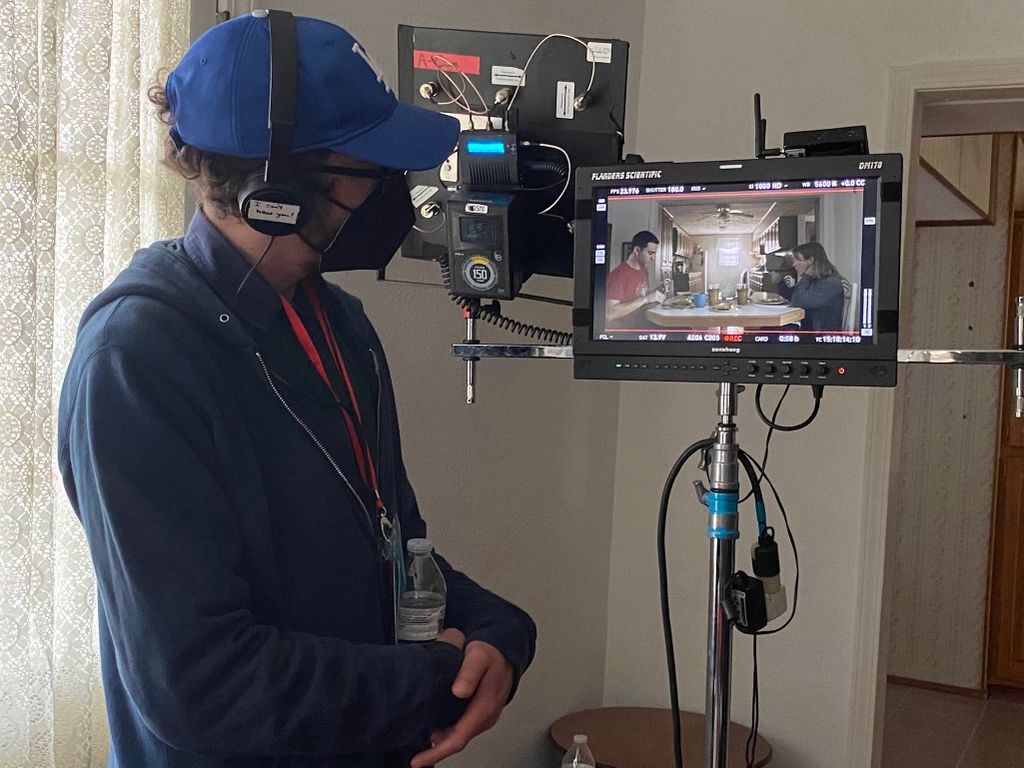
Turning to another important relationship in the film, how would you describe the relationship between Mitch and Tom? Because at the beginning of the film, I was kind of under the assumption that Tom was using Mitch to climb the social ladder. Does he actually care about him? I had conflicting feelings, I’d like your insight.
I think they are bonded through the trauma of pledging the year prior, bonded by what we haven’t seen. To me, they’re best friends of one year – you don’t know anybody at that stage. You see that Tom is loyal to Mitch in some way when he’s in the car with Todd, Lewis Pullman’s character. Todd is suddenly going hard on Mitch. Tom defends him and says that he’s going through a hard time. I feel like he wants to be loyal to Mitch but is still figuring out who Mitch is. It’s a friendship that neither of them has ever had and they appreciate it, but I think it starts to create a lot of problems for Tom. It’s a very toxic relationship.
I know you touched on it a little bit at the beginning of our conversation, but can you talk about the inspiration behind the film? We’ve seen versions of Tom’s story before, in Scent of a Woman, Saltburn, and even The Secret History by Donna Tartt, the outsider longing to belong and trying to fit in. Can you just touch on that a little bit?
Tom is a character who doesn’t realize he has agency until the end. I feel like Harvey Keitel’s character in Mean Streets was a big inspiration for him. Even though we wrote it a long time ago, people in popular culture sometimes reminded me of him, like Michael Cohen and I just feel like fraternities are always celebrated in popular culture.
The chemistry between the cast is incredible, especially between Alex (Wolff) and Bo (Mitchell). What was the casting process like? What were you looking for?
I was looking for people who were going to be invested. I started to realize that certain actors like Alex Wolff sign on to a project, all of a sudden, people are interested in playing supporting roles because they respect them and respect their investment and dedication. You look at a movie like Boogie Nights, and we all remember Philip Seymour Hoffman in that movie, even though his role is a smaller one. If you give a good performance, nobody’s thinking about that. I wanted to find people who agreed with the messaging of the movie and then would compromise their usual paycheque because they believed in the material. We got into a weird situation, or a great situation where it was kind of a chain reaction where a couple of people started saying yes, and then instead of stopping, I would go to the next person and they were like, “If this person’s taking a smaller role than I’m willing to.”
I think you definitely lucked out [laughter].
100%. Halle (Bailey) – she’s incredible. Let me tell you something else: all of them came in and did a lot of ADR with me after the fact, and were dedicated even after production. It was amazing.
That commitment is amazing. Can you take me back to the Tribeca Festival and the premiere of the film? Because it looked like a blast.
Honestly, it was great. It was wild to get the opportunity. I also really enjoyed the second and third screenings because those audiences weren’t connected to the movie. This is a movie that we edited at the editor’s house, and then to just have an opportunity to watch it at the theatre is really special.
What was it like experiencing the audience’s reaction firsthand?
After the first night of Tribeca, I realized I could never watch the movie and do a Q&A ever again. Because of the way we designed it. This is not a movie that makes you feel great when it’s over. But that’s how it has to be. That’s what we made. I feel like I’m in a better position to discuss it with an audience if I haven’t absorbed it.
I saw a post on your Instagram paying tribute to Angus (Cloud). What memories do you have from filming with him that kind of stick out?
So many. I met Angus three years before when I saw Euphoria. I asked the producer of The Line to see if we could get a meeting with him. We did. I ended up talking to him and driving him home. Because he needed a ride to Koreatown. Then we didn’t talk again. But when we went to him and asked if he would be in the movie, he said yes. We reunited in Oklahoma, and I took him to this place I had been going to get oatmeal every morning. I was like, “Dude, I’m going to take you to the best breakfast place, get ready.” I took him, and we ate this oatmeal, and he was just like, “Dude, that was fucking disgusting.” He would bring it up to me. He’d always joke with me about the time that I took him to this place. I remember how sincere he was. How hard it was for him to make any sort of judgment about the armpit hair or anything because it wasn’t in his character. I’ll remember his instincts. If a line didn’t sound authentic, he’d omit it. He valued authenticity in a performance. I’ll remember the way he fought through when he and Alex were having that scene where they were screaming at each other.
He was in this terrible accident years before Euphoria, and he had a scar on his head. He would get really intense migraines, and I remember him asking if he could have a couple minutes to lie down and we broke and then he got back up and finished. On the last day when we shot the scene where Austin Abrams dies, there was a snowstorm, and they told us that we had to wrap six hours early and it was the biggest scene in the movie, and I came into the garage during lunch to nervously pace and they were all standing in the garage eating and rehearsing. He was empowering and empowering the people who he believed in and knew to be great. He was a very loyal guy. He was such a present person. That it just magnifies his absence.
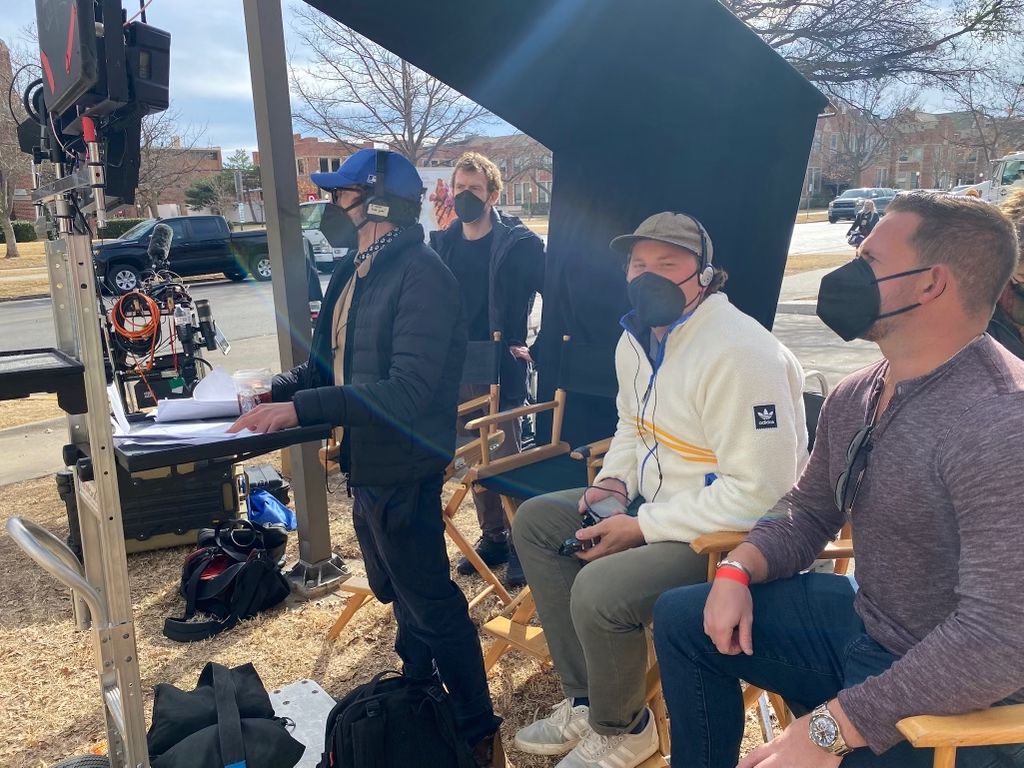
He had that vibe. He seemed like a very genuine human being. He will always be missed for sure. Moving forward what is something that you hope audiences take away from this film?
I hope they understand why a kid who’s 18 would join a frat, but also question whether it’s antiquated, or ask the question as to whether this is a tradition worth preserving. I think in order to change things, you have to acknowledge that they exist.
What are you working on next?
So, there’s this book written by Andrew Martin, which is a novel. Andrew and I co-wrote a screenplay of the novel. It’s about these two young people who meet at a dinner party and have sexual chemistry, and then you realize that they’re both in relationships. It’s about the way in which their affair uproots their lives and hopefully says some larger things.
Lastly, what have you learned about yourself, while making this project that you haven’t learned on others?
Filmmaking isn’t tennis. It’s a team thing. Your movie can’t be good without a good producer, EP, editor, production designer, costume designer, hair and makeup. Hannah (Gates) and Taylor (Goodman) who did the hair and makeup were so on top of continuity. Francesca (Palombo), the production designer, convinced me that shooting in this house would feel more authentic on-screen than shooting at an actual fraternity house. Akua (Murray-Adoboe) – I can’t even describe her impact, her creative approach to what people were wearing, and the subtle details that give you a sense of who people are. That’s cinematic. Or Skip Levesay, who absolutely makes this movie. He’s one of the greatest sound mixers in the history of movies and getting a chance to spend four days with him was incredible. Daniel Rossen who did my score is my hero. I grew up listening to his bands Department of Eagles and Grizzly Bear. I learned what it means to be truly collaborative. I also learned that, as a director, everything needs to be intentional. You need to have an answer for everyone, but it doesn’t necessarily have to be right away. You don’t always have to try and sound like a genius, you know? Yeah, it’s always important in anything that you do to give yourself grace.
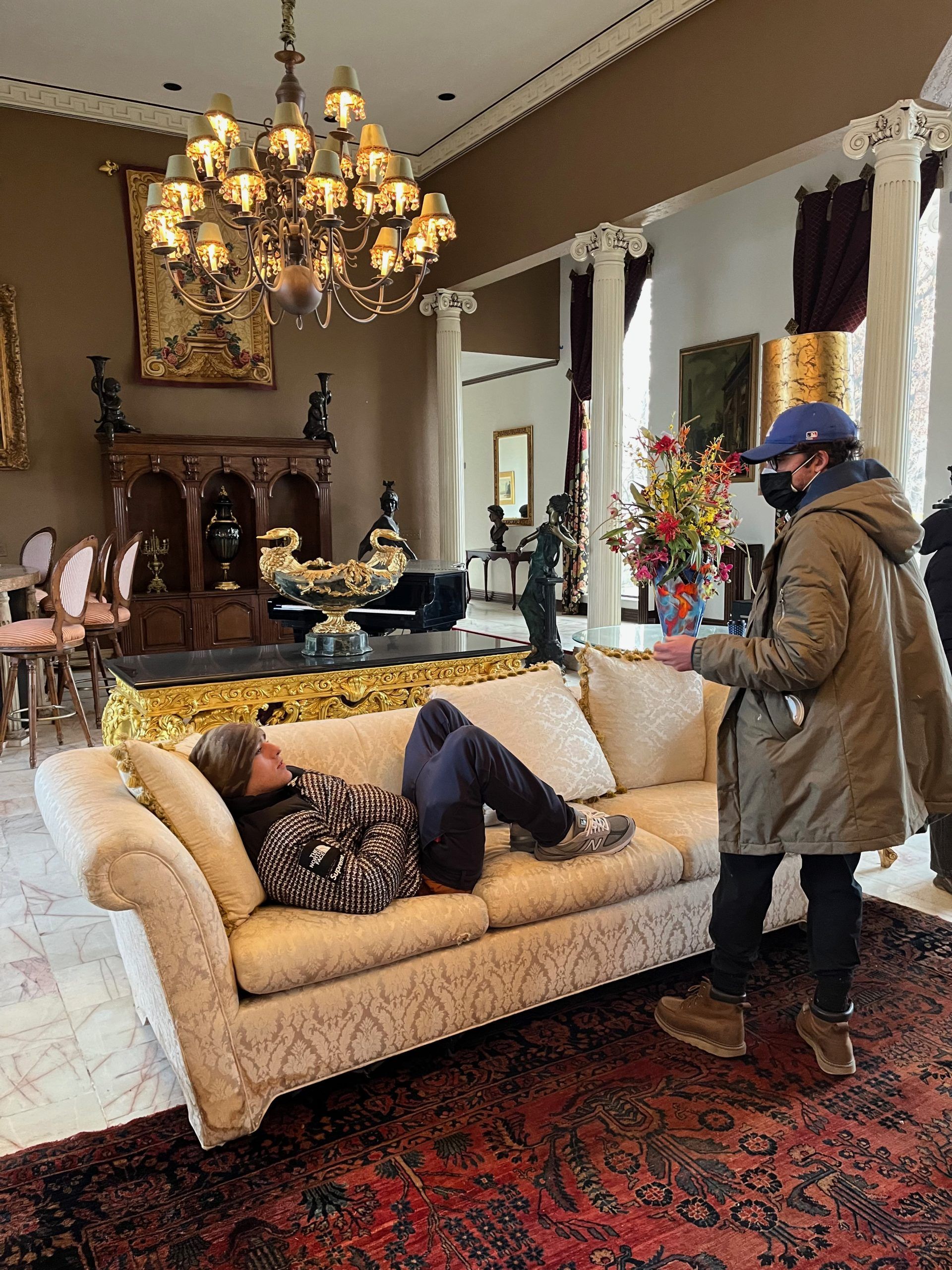
The Line is in theatres now.
Interview Dana Reboe

